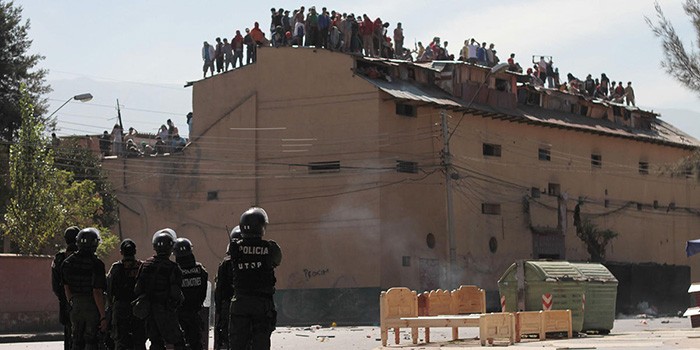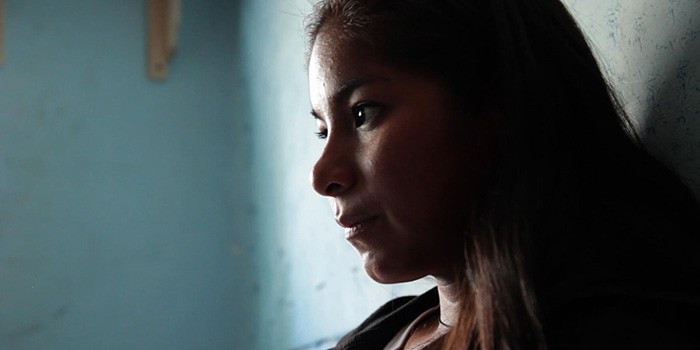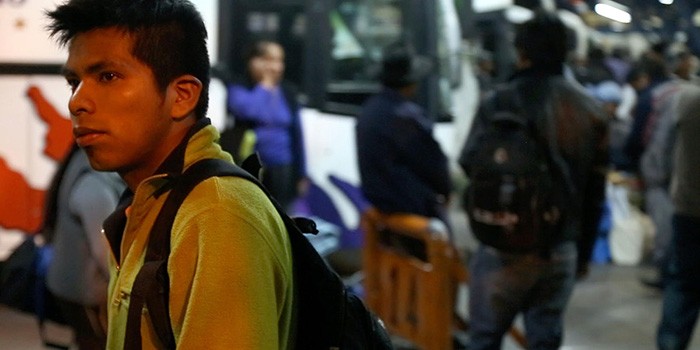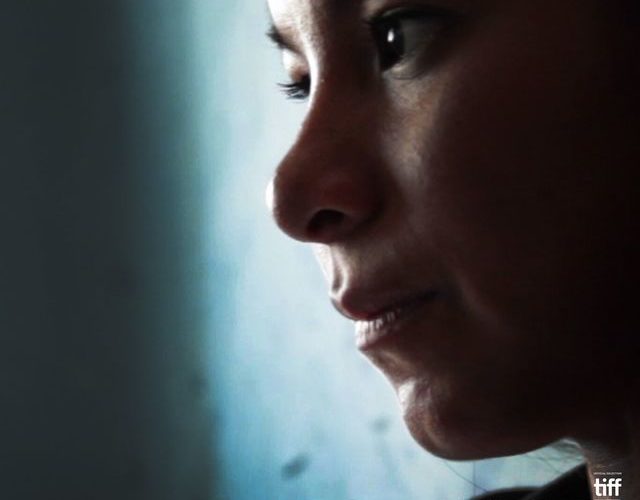If you’ve ever watched season three of Prison Break and wondered what was going on with Sona’s weird open air slum-like community barely watched by guards, know that the truth isn’t very far off. Just look at Bolivia’s San Sebastian Prison in Cochabamba, a small concrete establishment that ballooned from 180 inmates to over 700 in less than five years. You have to purchase a cell for $2,100 American dollars of your own money if you don’t want to sleep in the halls. You have to wait months and sometimes years before your trial even occurs. And the majority of those sentenced are merely low-level drug offenders filling a governmental quota so their bosses can remain free and continue feeding the nation’s economy. It’s a world unto itself.
Filmmakers Violeta Ayala and Dan Fallshaw willfully enter this enclosed community posing as aides teaching inmates English. On top of conducting their own interviews, though, they also smuggled in tiny digital devices with video capability that allowed the prisoners to film their day-to-day themselves. They did this for five years, eventually tightening their focus to spotlight three specific byproducts of this corrupt system built to profit off innocents’ freedom. The result is Cocaine Prison, a rare candid glimpse at the chaos endured within a country reliant upon cocaine for its survival. Harvesting the leaves is legal, but transforming it into its white powder form isn’t. The big bosses will spend $1,500 to make $15,000 and they’ll do it on the backs of desperate migrants without any viable alternatives.

This main trio consists of Hernan Torres (son of a coca farmer who tried taking two kilos of cocaine into Argentina for only one hundred dollars, an amount needed to buy a drum-set), his sister Daisy Torres (working hard in high school to seize the educational advantage her brother squandered all while meeting with lawyers to petition on his behalf), and his best friend on the inside Mario Bernal (a father now nine hours from home who had the misfortune of being arrested on his first day softening coca leaves for drug production). They aren’t necessarily innocent, but they aren’t criminal masterminds either. They are merely poor citizens who trusted the wrong people in order to enjoy their childhood and take care of his children respectively.
And what we witness is how insidiously entrenched the true bad guys are to the game itself. We are made to wonder whether Mario’s lawyer is actually working for his boss instead of him. We fear that the men Daisy meets are more interested in using her to catch drug-lords than help her brother — offering empty promises of safety and assistance much like their potential collars did in the first place. Suddenly you see that the justice system here is just as corrupt as the cocaine trade sustaining its numbers. Trust becomes a liability and faith a fool’s errand as each year passes with a new birthday cake, Hernan’s family squeezed into his cell for a moment of happiness that evaporates as soon as the candles blow out.

The stories are harrowing, these first-hand accounts unfiltered by media bias or government interference an imperative to understanding how complicated an international “war on drugs” truly becomes. Removing cocaine from the world could ostensibly bankrupt Bolivia, render acres of farmland useless, and force families to move or starve. But don’t expect to gain any statistical insight through talking head interviews or graphic superimpositions as Ayala’s film seeks to impress upon our humanity with examples of broken lives left in the wake of professionals trying hard to quantify this tragedy in a neat little box. She hopes that we will relate with Hernan and Mario’s struggles beyond the faceless notion of crime to understand how the people who suffer the most are those manipulated by power, wealth, and fear.
It can get a bit jumbled along the way, though, with its constantly shifting focus. To watch the beginning is to believe the film will dedicate itself to the Torres family in order to portray migrant life and its myriad pitfalls. We watch the joy of children jumping into coca leaf-piles as we would autumn leaves around Halloween, their innocence augmented by their close-knit dynamic of love, perseverance, and pride. The transition to parallel trajectories of Daisy outside and Hernan inside therefore makes sense because it’s still all about the Torres family and what can and will happen when you over-extend your involvement in the drug trade food chain. It’s therefore Mario’s introduction where things become disjointed as the film’s scope suddenly expands, but only for so long.

I’m not saying Mario’s tale is less important or less interesting — it might be more so on both counts. It just feels weird to shift so abruptly when there hadn’t been an indication we’d ever divert from Hernan and Daisy. Ayala and Fallshaw haven’t made a generic educational documentary wherein multiple vantages are used to drive home their point. Because we never meet anyone else, we don’t prepare for such a sudden move from one story to another. By investing us so fully with the Torres family, any diversion from them feels as though it’s a disservice to their plight. Is the film about them or the situation at-large? The fact that Mario is more or less forgotten once his relevant journey ends makes it hard to decipher.
At only 75 minutes, I wonder if the filmmakers could have expanded even further to tell other inmates’ tales too. They could have used the Torres siblings as an entry point into this much broader problem rather than seemingly as one specific example of it. Even though Mario is obviously a huge asset to Hernan upon his arrival, the decision to go so in-depth into his case serves a goal that moves beyond what Ayala originally set-up. Rather than invest in him with the same emotional currency as Hernan and Daisy, we stay at arm’s length in anticipation of some tragic revelation that he’s working against them. And when it’s finally understood he’s just another cocaine casualty, he’s gone and rendered an afterthought that makes us shift gears again.
Cocaine Prison premiered at the Toronto International Film Festival.

